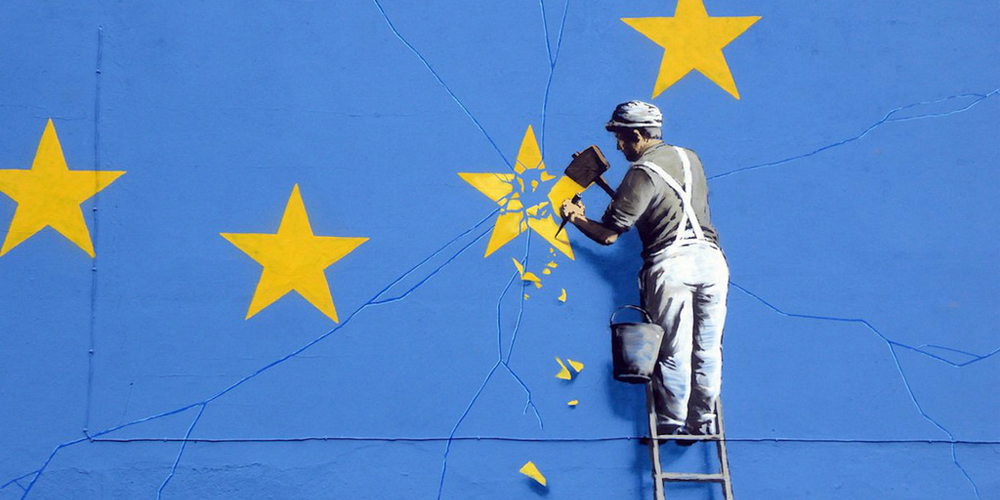What next for Brexit?
There was a time not long ago when the British stand on Brexit, reflected in both the Labour and Conservative general election manifestos, seemed fairly straightforward. The UK would leave the single market, withdraw from the European Economic Area (EEA),...
There was a time not long ago when the British stand on Brexit, reflected in both the Labour and Conservative general election manifestos, seemed fairly straightforward. The UK would leave the single market, withdraw from the European Economic Area (EEA), exit the EU customs union and negotiate a free trade deal, covering goods and services, with the EU27.
Would the EU27 accept such a proposal? There were always two problems. One was how to divide up among the remaining EU members the loss of funding from the UK – altogether around £12bn a year. The other was to avoid encouraging other member states to follow the UK’s example. The way to get the EU27 to compromise on the free trade deal was, therefore, for the UK to be willing, if needs be, to leave the EU without a trade agreement and to trade with the EU27 in future on World Trade Organisation (WTO) terms. It was never the UK’s intention to finish up with the WTO option but willingness to do so, if necessary, was the key to making the free trade deal a compromise which the EU27 would accept. Reciprocal WTO terms was a much worse option for the EU than for the UK because the EU27 have a huge trade surplus with the UK – £71bn in 2016.
Unfortunately, the results of the recent general election have dramatically changed the UK’s capacity to carry through this strategy. Now there appears to be no stomach in parliament for the WTO option, however poor the deal offered to us by the EU27 – probably something like the Norwegian option – turns out to be. The UK will still be in the EEA, thus gaining access to the single market, and still in the customs union, but also still paying a very substantial annual net contribution to the EU27, still committed to free movement of people, still subject to the Luxembourg court and unable to negotiate our own trade treaties. Just how tough the terms will be will depend on the biggest variable which is our annual EU subscription. If the UK rebate finishes up by being back on the table, this might be even larger than it is now.
The problem is that without the WTO option in play, the UK’s bargaining position is fatally weakened. The vast majority of Labour MPs are Remain at heart. With support from the Lib Dems and the SNP plus only a very small number of potentially dissident Tory MPs, a final settlement coming to parliament including the threat of WTO terms looks increasingly unlikely to get through. The result is that those intent on opposing the referendum result, especially Labour MPs, may get their way but the danger now is that they will do so at the cost of a four-part pyrrhic victory.
First, because our bargaining position is so much weaker, we look likely now to finish up with a very poor deal with the EU, achieving none of the objectives which the Leave camp wanted, but also leaving the UK in a worse position than it was, even from a Remain point of view – still in the EU more or less as we are now, but quite possibly paying a higher price and with no control over the way it develops.
Second, parliament may vote through a deal which the electorate at large finds falls far short of what they expected. A recent poll showed 70 per cent favouring Brexit on the best available terms. Few of these people are likely to think that the Norway option fits the bill. The result will then be a further weakening of trust between politicians and the electorate.
Third, support for the Labour party will be undermined as the 3.5m people who voted Labour in the 2015 general election, but who voted Leave in June 2016, find that Labour does not stand for what they want or what they think the country requires. The party may then haemorrhage the support it so badly needs, especially among blue-collar voters in the north of England and the Midlands.
Fourth, we will finish up with no long term generally accepted settlement with the EU. Being outside the single market, the EEA and the customs union but with a free trade deal might not satisfy parliament but it is an outcome which the vast majority of the country would be prepared to accept. Euroscepticism would then shrink back to being the preserve of a small minority of diehards instead of simmering on as part of the mainstream. With a Norwegian-style deal, this will never happen.
Who indeed now are the gainers from all – or any – of this?

